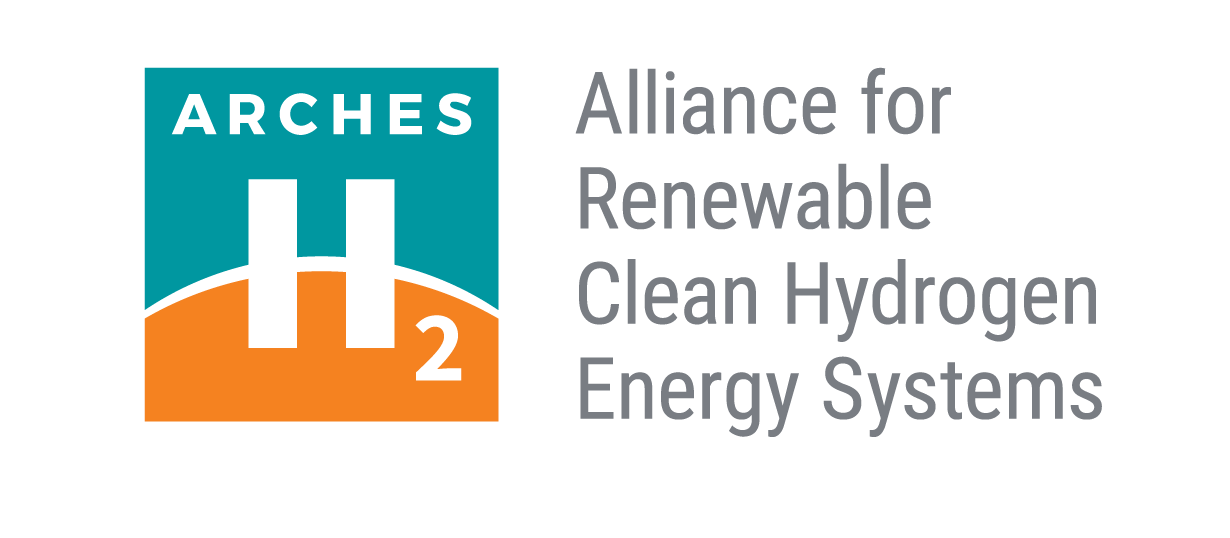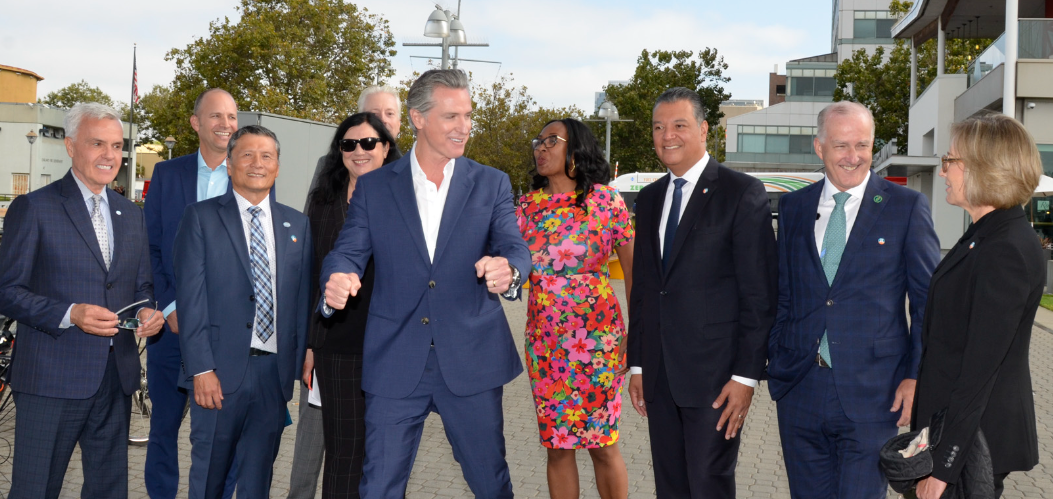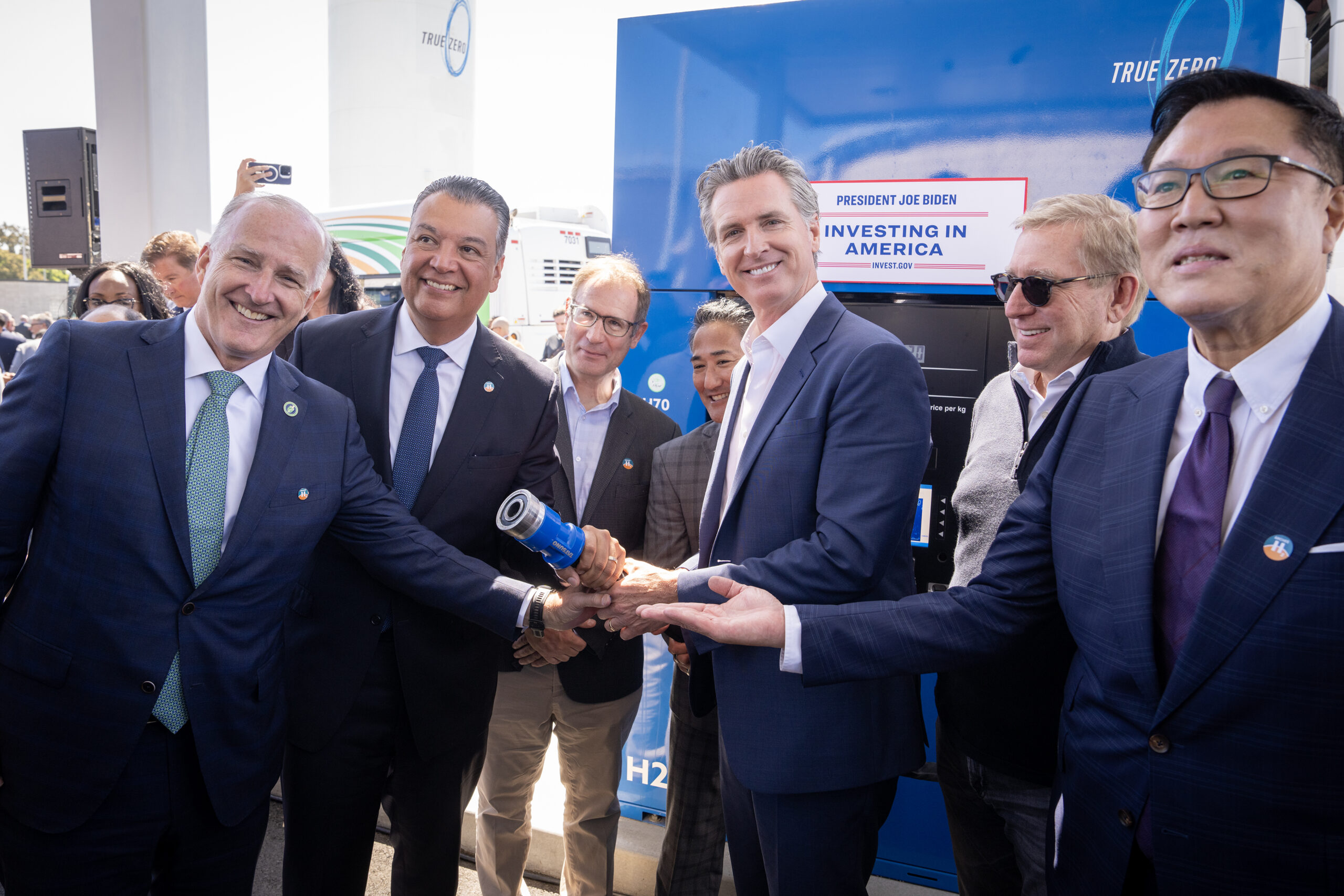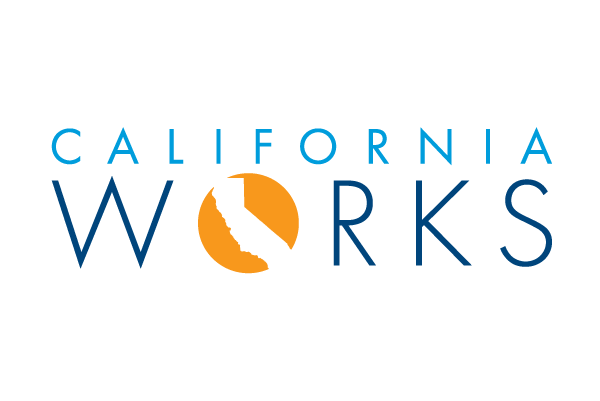This article is part of a series of profiles of CalChamber member companies that are contributing to the state’s economic strength and ability to stay competitive in a global economy. Visit California Works to learn more about this series and read past and future profiles.
 The demand for a hydrogen economy is here, promising to generate substantial economic impacts by creating jobs, driving innovation, and further positioning the Golden State as a global leader in net-zero technology. Leading this charge is the Alliance for Renewable Clean Hydrogen Energy Systems (ARCHES), the nation’s first hydrogen hub.
The demand for a hydrogen economy is here, promising to generate substantial economic impacts by creating jobs, driving innovation, and further positioning the Golden State as a global leader in net-zero technology. Leading this charge is the Alliance for Renewable Clean Hydrogen Energy Systems (ARCHES), the nation’s first hydrogen hub.
Working closely with the U.S. Department of Energy, the Governor’s Office of Business and Economic Development (GO-Biz), as well as state legislative and agency offices, this public-private partnership aims to improve the environment, air quality, and quality of life for all Californians while bolstering local economies.

A Catalyst for California’s Net-Zero Economy
In an effort to streamline processes, Governor Gavin Newsom directed GO-Biz, a founding member of ARCHES, to develop a fast-track hydrogen infrastructure development. This initiative has garnered broad government support, with bipartisan backing from state legislators and coordination across multiple agencies, including the California Air Resources Board, ensuring alignment with statewide clean energy mandates.
California’s shift to a hydrogen-powered future requires a collaborative approach between regulators and private businesses. Together, ARCHES, its broad government coalition and private industry partners can advance the state’s climate goals of reducing greenhouse gas emissions to 40% below 1990 levels by 2030.
“ARCHES was structured to enable and deliver a clean renewable hydrogen energy system in California and beyond,” said ARCHES CEO Angelina Galiteva. “Governor Newsom’s all-of-government approach to accelerating the hydrogen market is exactly what we need to deliver for California and the nation. ARCHES is fully committed to working hand in hand with the Governor’s Office of Business and Economic Development and our broad coalition of partners to accelerate California’s transition to a carbon-free economy.”
The following key impacts highlight ARCHES’ broader effects on the state economy and local health benefits:
- Job Creation: ARCHES projects will create 220,000 jobs, spanning sectors from renewable energy development to infrastructure construction, logistics, and advanced technology.
- Health Benefits: Hydrogen projects bring about $2.95 billion in health-related economic benefits every year, including fewer hospitalizations and reduced health care costs.
- Community Impact: At least 40% of the benefits, approximately $380 million, will be dedicated to local communities through community-directed investments, workforce training, and family-supporting jobs.
The transition to hydrogen will require a highly skilled workforce, creating opportunities for promising careers through clean energy job training programs.
The economic advantages extend beyond job creation, too. Hydrogen offers an unparalleled opportunity to decarbonize hard-to-electrify sectors, such as heavy-duty transportation, ports, and goods movement.
With quick refueling times, long ranges, and lightweight systems, hydrogen fuel cell vehicles can complement battery electric vehicles, creating a diverse and resilient clean energy system that supports California’s climate goals.

Projects Underway
ARCHES is currently determining potential siting and facility options across California, with selected sites (projects) including:
- Production: ARCHES is developing more than 10 hydrogen production sites statewide, with a focus on the Central Valley. These sites will use clean sources to produce hundreds of metric tons of clean hydrogen per day.
- Power: ARCHES plans to transition several small-scale distributed energy systems to fuel cells as well as at least two large-scale power plants in Southern and Northern California (the Los Angeles Scattergood plant and Lodi Energy Center) to 100% renewable hydrogen.
- Transportation: ARCHES has developed partnerships with more than 13 regional transit agencies to develop at least 60 hydrogen fueling stations for fleets of approximately 5,000 Class 6-8 trucks and 1,000 fuel cell electric buses, gradually removing diesel-fueled trucks from circulation resulting in immediate air quality benefits to surrounding communities.
- Ports: At marine terminals, including the Ports of Long Beach, Los Angeles and Oakland, ARCHES aims to replace existing diesel-powered heavy equipment and drayage trucks with hydrogen fuel cell alternatives, improving air quality for surrounding communities.
Powering California Forward
The economic and environmental benefits of a hydrogen economy are clear. Through sound investments in clean hydrogen technologies that strengthen the hydrogen-value-chain, ARCHES projects will create jobs, foster innovation and power the state forward to a net-zero future.


